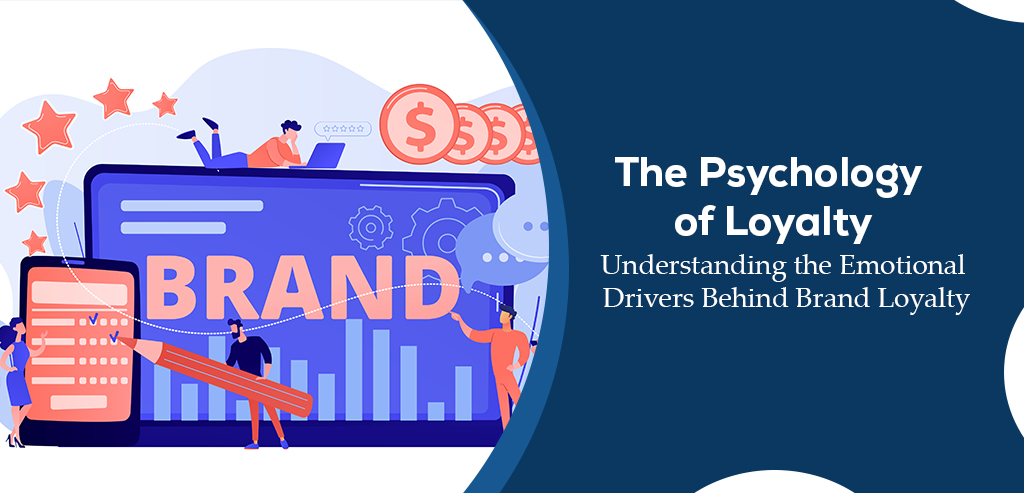Brand loyalty is a fascinating psychological phenomenon that depends on the intricate emotions that drive consumers to develop steadfast connections with specific products or services. This enduring loyalty goes beyond mere satisfaction, revealing the profound impact of emotions on consumer behavior. The psychology of loyalty explores the underlying factors that foster this deep-seated commitment, such as trust, familiarity, and emotional resonance. Understanding these emotional drivers can empower businesses to craft compelling marketing strategies and enhance customer experiences, fostering lasting connections that withstand competition and market fluctuations. Unraveling the complexities of brand loyalty programs opens up the keys to creating devoted brand advocates, ensuring long-term success and customer retention.
Here are some emotional drivers of brand loyalty!
Trust
Trust forms the foundation of brand loyalty. Consumers must have confidence in a brand’s reliability and consistency in delivering promised benefits. Brands that consistently meet or exceed expectations create a sense of security and comfort for their customers, making them more likely to remain loyal over time.
Emotional Connection
Beyond functional benefits, emotional connections foster deep brand loyalty. Brands that evoke positive emotions, such as happiness, nostalgia, or inspiration, are more likely to create lasting impressions on consumers. Emotionally attached customers not only remain loyal but also become brand advocates, promoting the brand to friends and family.
Brand Identity
A strong brand identity can evoke a sense of belonging among consumers. When a brand aligns with their values, beliefs, or lifestyle, customers are more likely to associate themselves with the brand, leading to greater loyalty. Brands that authentically reflect their purpose and mission can build a devoted customer base.
Personalization
In today’s personalized world, consumers seek tailored experiences that resonate with their individual preferences. Brands that demonstrate a deep understanding of their customers’ needs and preferences can create personalized interactions, enhancing loyalty and building long-term relationships.
Consistency
Consistency across all touchpoints is crucial for sustaining loyalty. Consumers appreciate brands that maintain a consistent image, message, and quality across their products, services, and marketing efforts. A consistent experience instills a sense of reliability and reliability, increasing the likelihood of customer retention.
Perceived Value
The perception of value goes beyond the price tag. Consumers often value factors such as quality, customer service, and overall experience when assessing a brand’s worth. Brands that consistently provide excellent value are more likely to retain their customers, even in the face of competitive pricing.
Reward and Recognition
The human brain responds positively to rewards and recognition. Brands that implement loyalty programs, offer incentives, or express gratitude to their customers build a sense of reciprocity. Customers feel valued and appreciated, reinforcing their loyalty to the brand.
Social Proof
The principle of social proof demonstrates the powerful influence of others’ experiences on our decisions. Positive reviews, testimonials, and word-of-mouth referrals from friends or influencers can significantly impact brand loyalty. Consumers often trust the opinions of others who have had positive experiences with a brand.
Exclusivity
Exclusivity creates a sense of privilege and uniqueness among customers. Limited-edition products, access to exclusive events, or special offers can evoke feelings of prestige and loyalty. By creating a sense of exclusivity, brands can cultivate a dedicated customer base.
Consistent Communication
Effective communication is essential for building and maintaining brand loyalty. Regular engagement through various channels, such as social media, email marketing, or customer support, keeps the brand fresh in the minds of consumers. Consistent communication fosters a sense of familiarity and trust, establishing loyalty.
LetsVeriFy understands that creating an emotional connection with customers is vital for long-term loyalty. Our programs are designed to evoke positive emotions through personalized interactions, exclusive rewards, and recognition, fostering a genuine bond between customers and the brand.
Conclusion
Understanding the psychology behind brand loyalty is crucial for businesses seeking to build enduring customer relationships. The emotional drivers discussed in this article form the core principles that guide consumer behavior. By leveraging these emotional drivers, brands can create experiences that resonate with their customers on a deeper level, fostering loyalty and advocacy. Ultimately, the successful integration of psychology into brand strategy will enable businesses to thrive in an increasingly competitive landscape, securing their place in the hearts and minds of loyal customers.

